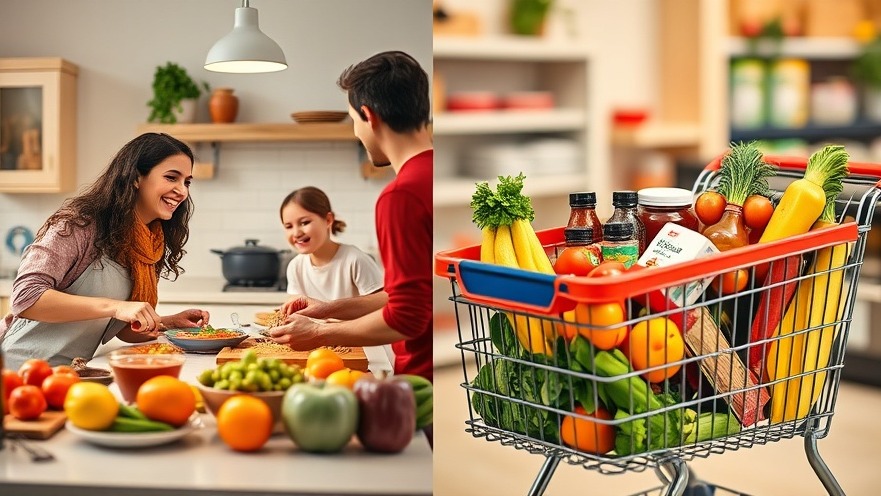
Know What You’re Buying: Items That Inflated Grocery Prices
In today’s economy, being mindful of grocery expenses has become essential for many households, particularly those who prioritize health and wellness. For residents of Maryland, where the cost of living may slightly diverge from the national average, understanding which grocery items contribute the most to inflated food bills can empower consumers to make smarter purchasing decisions.
Common Grocery Items That Can Wreck Your Budget
Common culprits like pre-packaged snacks and organic pre-cut vegetables can dramatically increase your grocery bill without your awareness. These convenience items often bring added costs, leading many to overpay for basic nutritional needs. The average shopper might not recognize that opting for whole fruits and vegetables instead can save a significant sum, all while benefiting personal health over the long term.
Enhancing Your Grocery Shopping Experience
For Maryland families committed to nurturing both their health and finances, there are various strategies to maximize grocery shopping experiences. Buying in bulk, for example, can help eliminate those pesky unit price markups often seen on smaller packages. Moreover, accompanying purchases with weekly menus can minimize impulse buys—an often overlooked strategy in achieving both nutritional and financial goals.
Strategies for Health-Conscious Shoppers
Another effective approach is to plan shopping trips around seasonal produce. Maryland, known for its rich agricultural landscape, offers a variety of fresh fruits and vegetables at certain times of the year. Buying these seasonal items not only supports local farmers but also provides you with fresher options that are often cheaper than out-of-season varieties. Frequenting local farmer's markets can enhance budget-friendly shopping while ensuring health-conscious choices.
Understanding Food Labels: Savvy Shopper Skills
Another pivotal aspect of careful grocery shopping is understanding food labels. Shoppers can often be lured in by buzzwords such as “organic” or “all-natural.” These terms can sometimes justify higher prices for products that may not significantly differ in quality or nutrition from their conventional counterparts. Learning to read labels can not only ensure you’re getting quality products, but also help you avoid those inflated fees for what might be little more than marketing hype.
Long-Term Wellness and Financial Planning
Pulling together the threads of financial literacy and health, it’s clear that conscientious grocery shopping can create a beneficial cycle of health, wellness, and fiscal prudence. By consistently evaluating your grocery purchases and remaining aware of the true costs associated with convenience foods, Maryland residents can maintain both their health objectives and their financial well-being.
Take Charge of Your Grocery Bills!
Given the rising costs that shoppers face, now is the time to take charge of your grocery bills. By implementing these strategies—like prioritizing fresh, in-season produce and reading labels—you not only empower your budget but also foster a healthier lifestyle. For Maryland residents, the combination of budget awareness and health consciousness reflects a mindful chosen way of living.
 Add Row
Add Row 
 Add Element
Add Element 


Write A Comment